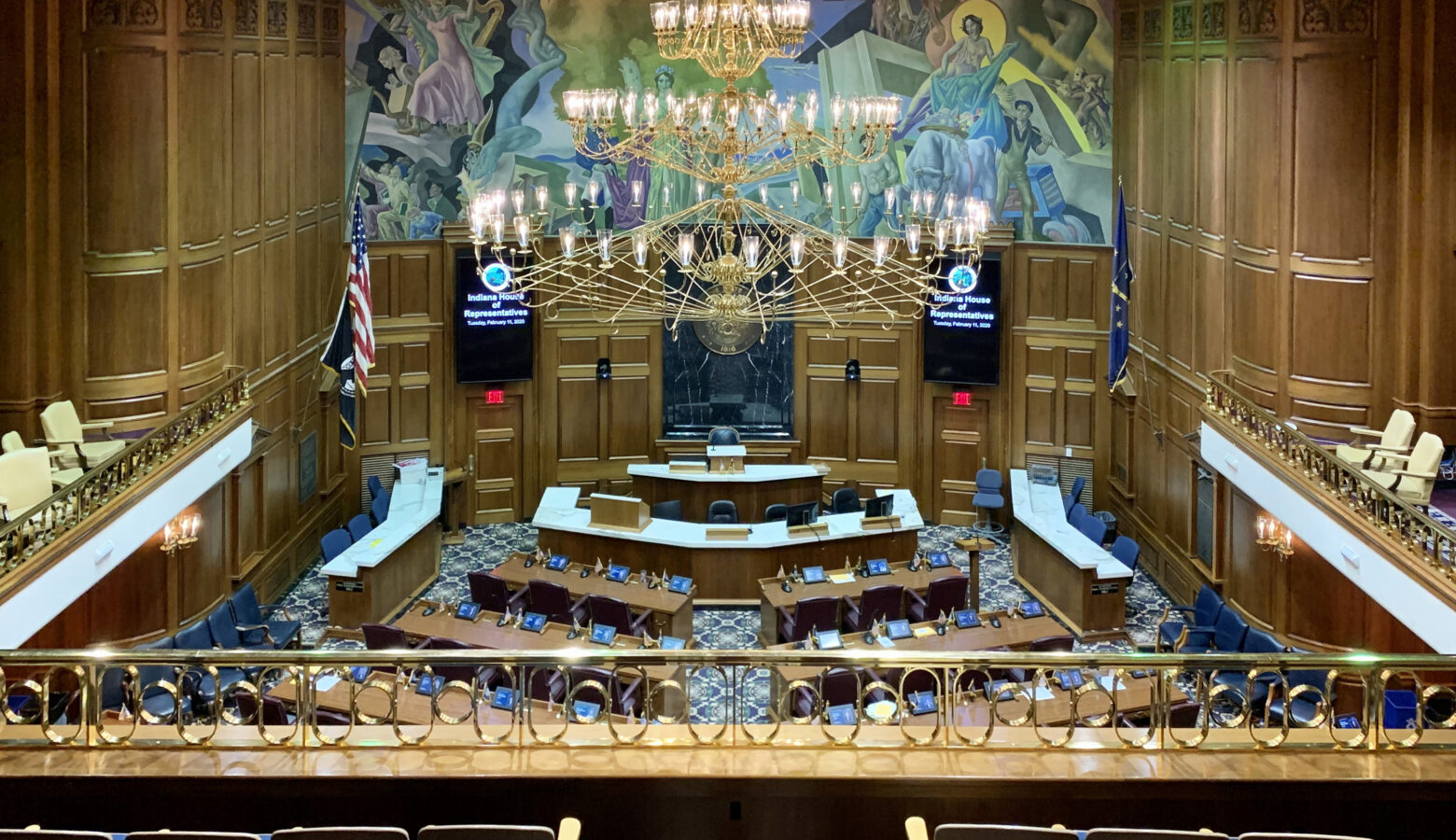Some of the 2022 legislative session’s biggest issues defined by Republicans vs. Republicans

Republican supermajorities control both chambers of Indiana’s General Assembly. But that doesn’t mean they agree on everything.
Some of the biggest issues of the 2022 session were defined not by Republicans versus Democrats but Republicans against Republicans.
Disagreements between the House and Senate chambers aren’t unusual. But this session featured some particularly stark divides between the Republican supermajorities, even as House Speaker Todd Huston (R-Fishers) downplayed those disputes.
“They think what they send over is very important and we think what we send over is very important,” Huston said. “And we’ll work together to communicate why we pass what we passed and they pass what they pass.”
Why such divisions this year? Senate Democratic Leader Greg Taylor (D-Indianapolis) had a theory.
“There’s a culture war going on in this country,” Taylor said. “And, unfortunately, some of the members of the supermajority are trying to bring that to Indiana.”
Halfway through session, Taylor predicted the Senate would put a halt to some of that particularly divisive legislation. And in some cases, he was right.
The best example is HB 1134, a school curriculum measure. Its author, Rep. Tony Cook (R-Cicero), said his goal was to get “lots of parental involvement and input” into schools.
“They have a right to be an active voice in their schools … many, in many schools – maybe not yours – feel like they are not heard,” Cook said. “They’re put off by access to informations and materials. We’ve heard hundreds and hundreds of those stories.”
Opponents of the bill had a very different view of it. One of the main features of its earliest version curtailed classroom discussion on eight different concepts, including sex, race and political affiliation.
High school senior Tilly Robinson worried the measure would hinder a well-rounded education.
“Considering the polarization and discord that have engulfed school boards statewide, I fear the committee process would enable a vocal minority to impose their political agenda on K-12 curricula,” Robinson said. “Parents should have a voice, not a veto.”
The House made major changes to the bill before passing it. A Senate committee made more. And then more. But the bill still couldn’t make it to the Senate floor, as Senate President Pro Tem Rodric Bray (R-Martinsville) explained.
“Some members of our caucus felt like it didn’t go far enough,” Bray said. “We had some members of our caucus who felt like it was too much of a burden.”
The House and Senate also fiercely debated COVID-19 vaccine employer mandates, HB 1001. House Republicans – as far back as November, before session started – tried to effectively block companies from enforcing such mandates. They were responding, they said, to the fears of constituents like Daniel Groves.
“This is America and we should never have to ask permission for freedom,” Groves said.
Every major health care and business organization in the state opposed the bill. And the Senate ultimately sided with them, carrying the day by largely maintaining the status quo.
But the House got its victories, too – notably on a gun bill House Republicans have pushed for years. It allows Hoosiers to carry a handgun in public without a permit.
The Senate had, in the past, nixed the idea. And it seemed like it was headed that way again, after a Senate committee gutted the bill following stunning testimony from State Police Superintendent Doug Carter.
“This is the problem with a supermajority,” Carter said. “It stifles, prohibits and oftentimes limits public debate. I sure hope you choose to show deference to law enforcement professionals.”
But Republicans revived the measure in HB 1296, passing it on the final day of session.
And maybe the House’s biggest win of 2022 was on tax cuts. For months, the House GOP pushed significant reductions. Huston said Indiana has the money to make important future investments and put dollars back in Hoosiers’ pockets.
“I’ve heard loud and clear from Hoosiers – they’re not looking for more government programs,” Huston said. “They’ve had their fill of those.”
Senate Republicans, up until seemingly the final hours of session, resisted significant cuts. Sen. Ryan Mishler (R-Bremen) regularly voiced concerns about uncertain economic conditions – inflation, supply chain issues, high gas prices. His caucus’s preference was to wait until 2023 for major cuts.
“You know, when government has money, everyone wants to spend it – just on different things,” Mishler said. “Everybody has a different idea of how to spend it.”
READ MORE: Holcomb lays out tax cut specifics, proposes bigger individual income tax cut
Join the conversation and sign up for the Indiana Two-Way. Text “Indiana” to 73224. Your comments and questions in response to our weekly text help us find the answers you need on statewide issues. Trying to follow along with our coverage of the legislative session? We’ve compiled all the stories our reporters have published by bill number and topic here.
But continued strong state revenues ultimately pushed the Senate to agree to tax cuts in HB 1002 – a seven-year reduction of the individual income tax and elimination of utility taxes, key provisions of the House GOP’s plan.
At the close of the 2022 session, Bray acknowledged that there seemed to be bigger disagreements between Republicans than usual.
And with both chambers looking to secure continued supermajorities for the foreseeable future, that’s unlikely to change.
Contact reporter Brandon at bsmith@ipbs.org or follow him on Twitter at @brandonjsmith5.

